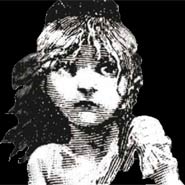“Hugo’s works have become timeless classics that have much to teach us about the relationship between art and democracy,” says Dr Bradley Stephens, from the University of Bristol’s French department, who will present a Twilight Talk on Hugo on 28 July at The Watershed. “When we think of the story of Les Misérables, we think of the man in relation to the revolution, but what do we really know about Hugo as an individual?”
Dr Stephens will examine the enduring fascination with Les Misérables, the world’s longest running musical which to date has been seen by over 50 million people in 38 different countries and in 21 different languages.
Now, 125 years after his death, Hugo retains the same legendary iconic status that he earned in the 19th century. But what is it that the French in particular and fans of his work revere so much?
Dr Stephens will explore the great man and his life, from his leadership of French Romanticism through the age of revolution, through his political exile in the Channel Islands, to his unprecedented State funeral in Paris in 1885.
Hugo was truly an artist of his time, insisting on the connection between personal freedom and individual responsibility. His peers were equally captivated with Hugo’s work, including Dickens and Dostoyevsky, Tolstoy and Tennyson, and even Van Gogh, who was fascinated with Hugo’s artwork. For these famous figures as for so many others, Hugo combined an acute sense of human worth with a profound awareness of the edifying effect art could have on the common man.
During a 70 year career, Hugo earned himself the reputation as France’s greatest writer, producing at least eight novels, nine plays, 25 collections of poetry, and numerous political essays, and over 3000 graphic works.
Dr Stephens adds: “In detailing Hugo's life and reputation, I hope to paint a vivid and exciting picture of the man behind Les Misérables, and to identify the ways in which this two-part story - that of his own life and his 'afterlife' as a literary great - helps sophisticate our understanding of his ever popular work.”
